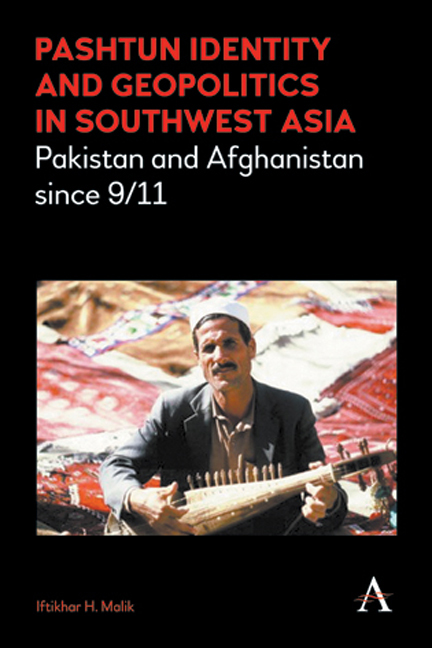Book contents
- Frontmatter
- Contents
- Preface
- Acronyms
- Glossary
- Maps
- Introduction
- Chapter One Gandhara Lands: Wrestling with Pashtun Identity and History
- Chapter Two Imperial Hubris: The Afghan Taliban in Ascendance
- Chapter Three Masculinities in Conflict: Western Pedagogy and the Return of the Afghan Taliban
- Chapter Four Understanding Pakistan: Geopolitical Legacies and Perspectives on Violence
- Chapter Five Understanding Civic Sentiments and Movements in Pakistan: Stalemated Cycle, or a Way Forward?
- Chapter Six The United States and Pakistan: Friends or Foes!
- Chapter Seven The European Union and Southwest Asia: Perceptions, Policies and Permutations
- Conclusion: Pashtun Troubled Lands, Uncertain Southwest Asia or a New Beginning!
- Notes
- Bibliography
- Index
- Frontmatter
- Contents
- Preface
- Acronyms
- Glossary
- Maps
- Introduction
- Chapter One Gandhara Lands: Wrestling with Pashtun Identity and History
- Chapter Two Imperial Hubris: The Afghan Taliban in Ascendance
- Chapter Three Masculinities in Conflict: Western Pedagogy and the Return of the Afghan Taliban
- Chapter Four Understanding Pakistan: Geopolitical Legacies and Perspectives on Violence
- Chapter Five Understanding Civic Sentiments and Movements in Pakistan: Stalemated Cycle, or a Way Forward?
- Chapter Six The United States and Pakistan: Friends or Foes!
- Chapter Seven The European Union and Southwest Asia: Perceptions, Policies and Permutations
- Conclusion: Pashtun Troubled Lands, Uncertain Southwest Asia or a New Beginning!
- Notes
- Bibliography
- Index
Summary
‘Tribe wars with tribe. Every man's hand is against the other and all are against the stranger […] the state of continual tumult has produced a habit of mind which holds life cheap and embarks on war with careless levity.’
Winston Churchill on Pakhtuns‘For the poor, bloodied Afghans, Peace Be Upon Them.’
Book's Dedication‘We should evacuate the entire civilian population from FATA and let the U.S. air force raise [sic] the entire region to the ground. No more extremists, no more foreign militants.’
A reader's comment, DawnHistorically, and more so since the Soviet invasion of Afghanistan in 1979 and following the transforming events of September 11, Pakistan and Afghanistan, the two neighbouring Southwest Asian nations became the centrepiece of sustained global geopolitical, military and intelligence pursuits. Amidst military campaigns and militant attacks daily claiming numerous lives, along with the destruction of infrastructure and the environment, a comparatively less developed region in South Asia was catapulted into a cause célèbre of some of the longest and most expensive wars that the North Atlantic Treaty Organization (NATO) and its allies have ever fought, costing them in the trillions besides providing substantial justification for the militants to act upon their own agendas. Southwestern Asia – sometimes simplified as Af–Pak – not a core area in the erstwhile cold war yet home to the historic and ancient Indus Valley civilization characterized by diversity and cultural fertility, has been transformed into a core region in what President George W. Bush, Prime Minister Tony Blair and scores of their allies rushed to call the ‘war on terror’, or what some saw as the ultimate clash of cultures or even of fundamentalisms. Both Afghanistan and Pakistan turned into the proverbial bull's eye for a whole generation of military planners, strategists, scholars, think tanks, spies, journalists and certainly the warriors, all imbued with professional or moral righteousness to pursue the new millennium's sustained and taxing confrontation in the valleys of the Hindu-Kush and the upper reaches of the Indus. Here, modern cave busters, ‘dumb bombs’, midnight search operations, the whisking of the bearded fellows to Bagram and Guantanamo, ever-escalating, round-the-clock predator drone (UAVs) flights unleashing Hellfire missiles, and a whole generation of suicide bombers wearing crudely made vests or planting improvised explosive devices (IEDs) kept filling the cemeteries.
- Type
- Chapter
- Information
- Pashtun Identity and Geopolitics in Southwest Asia , pp. 1 - 12Publisher: Anthem PressPrint publication year: 2016



